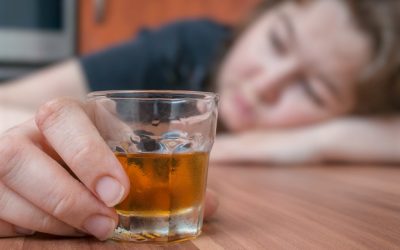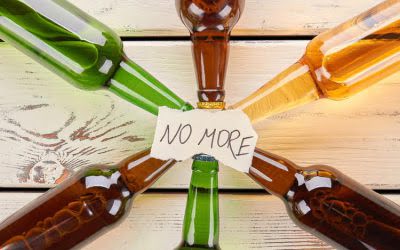First, alcohol affects everyone differently because of a slew of factors, like age, biological sex, and body composition, just to name a few. If you pass the moderate threshold, though, you’ll get a lot more of that initial non-REM sleep, but significantly reduce the total percentage of REM sleep over the whole night. Peters is a board-certified neurologist and sleep medicine specialist and is a fellow of the American Academy of Sleep Medicine.
Disrupted circadian rhythm

Find and strengthen your best habits and help others improve theirs. Although there’s no evidence that alcohol can cause narcolepsy (sleepwalking), it does disrupt REM sleep, which may make the onset of sleepwalking more likely. Dr. Seema Khosla is the medical director of the North Dakota Center for Sleep and a medical advisor for MedBridge Healthcare. She is also a fellow of the College of Chest Physicians, as well as the American Academy of Sleep Medicine (AASM). Dr. Khosla runs a telemedicine outreach program that serves rural areas in North Dakota and what is alcoholism has done so for the past decade. She is active within AASM and has served on numerous AASM committees, including the original Telemedicine Task Force.
Could doing a dry month help you sleep better?
- Sleeping in a quiet, dark, and cool room—and keeping the bedroom for sleeping, not TV or phone use—are additional tips Dr. Colsky recommends for promoting sleep.
- With all the added stress from the pandemic, I’ve found myself reaching for a large glass—or two, let’s be real—of wine almost every night.
- As a result of these frequent awakenings, people tend to clock fewer hours sleeping after drinking alcohol.
- The more alcohol you drink, the greater the negative effects on your sleep.
This happens because your body shifts from „sedation to stimulation” in the middle of the night as the level of alcohol in your blood decreases. Our state-specific resource guides offer a comprehensive overview of drug and alcohol addiction treatment options available in your area. Without proper treatment, returning to alcohol use may does alcohol help you sleep seem to be the only solution. Taking any other substances that have a sedative effect should be avoided unless a doctor prescribes them. Doing so without medical supervision can trigger a new addiction to another substance.
Can alcohol worsen sleep apnea symptoms? How does alcohol affect sleep quality?
Otherwise, you risk your cortisol levels rising and disrupting a healthy sleep cycle. Although consuming alcohol before bedtime helps you fall asleep faster, the popular beverage negatively affects overall sleep quality. When you consume alcohol before bed, your body metabolizes the alcohol throughout the night. As blood alcohol levels rise and fall, alcohol exerts different effects on your sleep. Alcohol also affects circadian rhythms – the 24-hour body clock that responds to environmental light cues in order to synchronise our sleep-wake cycle. One of the ways our circadian rhythm does this is through the release of specific hormones at certain times of the day.
- REM sleep behavior disorder, also known as rapid eye movement sleep behavior disorder (RBD) is a condition in which individuals experience realistic, often frightening dreams during the REM sleep stage.
- Although often causing us to fall asleep more quickly, alcohol also puts us in a much deeper sleep, allowing us less time in Rapid Eye Movement (REM) state.
- These include breathing exercises, visualization exercises and progressive muscle relaxation.
- If you think your drinking may be impeding your sleep or overall quality of life, speaking to your doctor or therapist is a great first step.
- Those who suffer from sleep disturbances due to restless leg syndrome (RLS) are often recommended to increase magnesium consumption.
How alcohol affects the sleep stages of your sleep
That’s right, the traditional “happy hour” time is actually when the body is most prepared to process that cocktail. If that mimosa with brunch hits you particularly hard, it may be the result of circadian timing. Experts say that it’s best to stay away from alcohol at least three to four hours before your usual bedtime and to yourself to moderate consumption.
Does Alcohol Help You Sleep Better?
In two separate studies, up to 28% of people said they use alcohol to help them fall asleep. So it’s easy to understand why young people can become locked into a repetitive cycle of sleep deprivation, alcohol dependence, risky behaviour and addiction. Using alcohol as a sleep aid may result in you believing the only way you can get to sleep is by drinking. If you’ve enjoyed a lovely three-course dinner with friends — washed down with a few glasses of wine — then it’s the combination of a substantial meal and the alcohol that’ll affect your sleep. It’s also worth remembering that alcohol isn’t solely responsible for disrupted sleep. Large doses of alcohol produce stupefied and comatose sleep as a primary symptom and sleeplessness as a secondary symptom.
- If you drink alcohol before bed, you – or a partner – may notice snoring.
- The cutoff value for alcohol use disorders is 10 points for men and 8 points for women.
- Have you ever woken yourself up snoring after an evening cocktail or two?
Subscribe to Focused on Health
It interacts with several neurotransmitter systems which play an important part in the regulation of sleep. Alcohol just before sleep can therefore lead to decreased sleep onset latency – that is, it can make you fall asleep faster. However as the body processes the alcohol during the later sleep stages, the quality of sleep is affected and the sleep architecture is changed. First, alcohol increases the action of a chemical messenger in the brain called GABA. This has a sedative effect, thought to contribute to the sleepy feeling many people experience when drinking alcohol. Alcohol may also increase levels of adenosine, a chemical messenger that is important for sleepiness.

Personal Relaxation Methods
After a few drinks, these increased adenosine levels send us into a deep sleep. However, once the body realizes it’s had too much slow wave sleep, the homeostatic drive compensates by allowing us less deep sleep in the second half of the night. During a normal night of sleep, we cycle through periods of light sleep, deep sleep, and rapid eye movement (REM) sleep. Each sleep stage plays an essential function, but deep sleep and REM sleep are considered the most important stages for physical and mental restoration.
With help from experienced professionals, substance use and co-occurring insomnia can be treated effectively. If you believe your drinking may be problematic, you may learn about the differences between casual and problematic drinking by taking a self-assessment. If co-occurring substance use and insomnia are causing problems in your life or the life of a loved one, reach out to a representative to begin the journey towards recovery. Multiple relaxation methods can be used to help you wind down and fall asleep. These include breathing exercises, visualization exercises and progressive muscle relaxation.